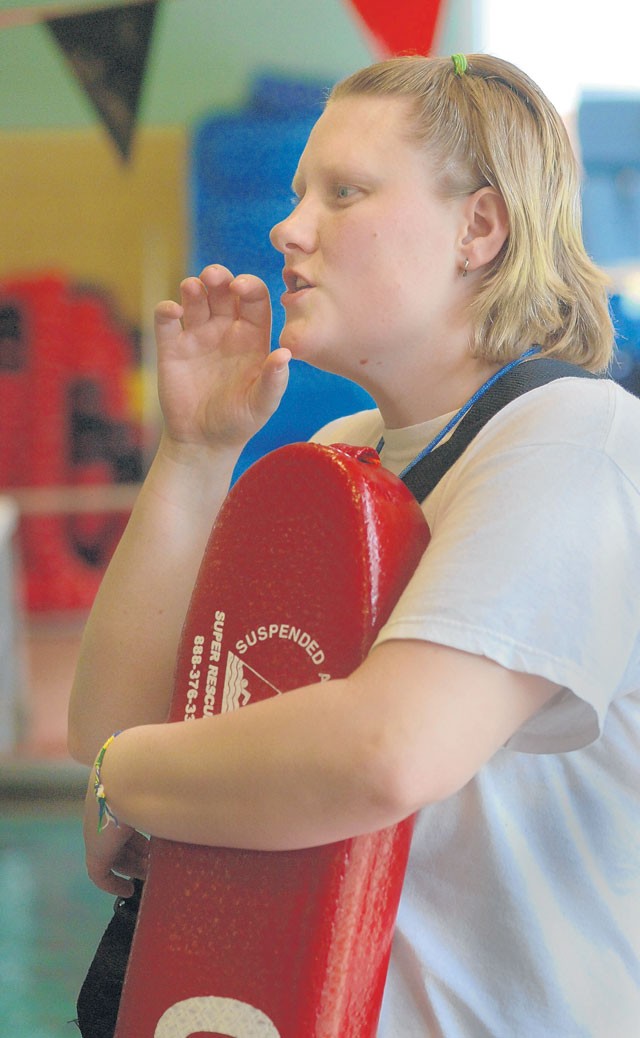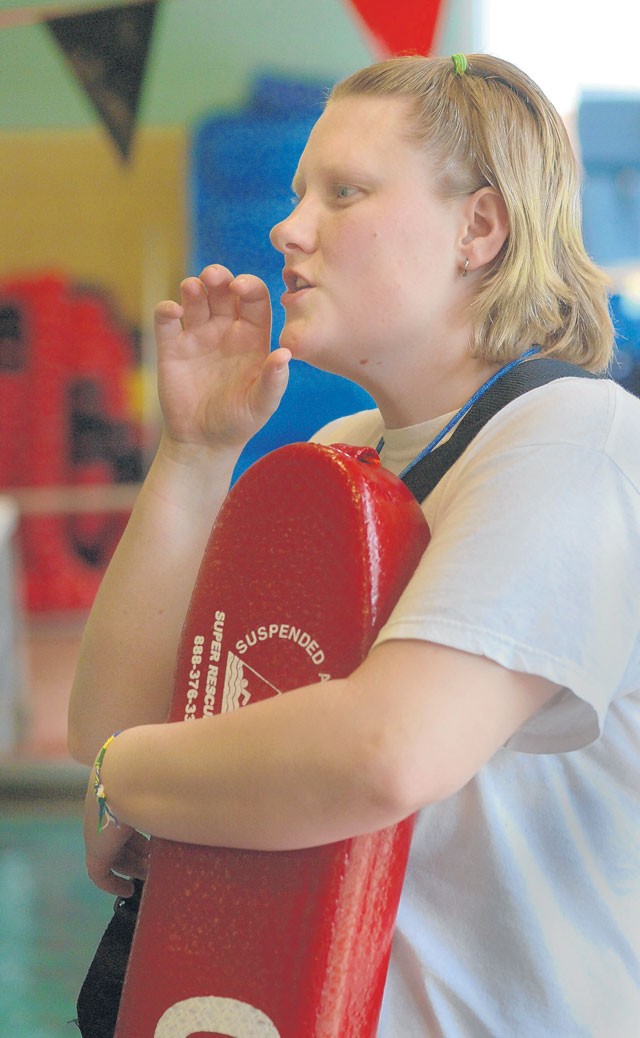FORT BELVOIR, Va. - As warm weather approaches, Assistant Aquatics Manager Sherita Baker is wading through her share of applicants in her search for lifeguards.
Anyone expecting a sexy summer job need not apply.
"It's not glamorous like 'Baywatch,'" Baker said, referencing the beach-centric television show. "There's no slow-motion running or anything. Lifeguards are professional rescuers. It's a real-world job, and there's a lot of work involved in being good at it."
In fact, much of the work - cleaning and sanitizing the facility, equipment maintenance and testing water chemistry - comes well before swimmers even set foot in the pool.
"I like to think of the process as getting your learner's permit," Baker said. "Until you've been here two or three seasons, you're pretty much training every day."
Individuals who apply for a lifeguard position at Fort Belvoir must be certified by the American Red Cross or possess another nationally recognized lifeguarding certificate.
Applicants are given a physical, then complete an orientation with the Directorate of Family and Morale, Welfare and Recreation to learn how to interact with both internal and external customers.
Finally, a new lifeguard shadows a veteran guard to learn the basics of what happens in a normal day.
Belvoir lifeguards must also pass a rigorous, in-pool test to demonstrate endurance. Lifeguard candidates must demonstrate specific strokes on a 300-yard continuous swim. Individuals must also complete a timed 15-yard swim to retrieve a 10-pound brick from the bottom of the pool and, while holding the brick above water with both hands, return it to the deck.
"If you're saving my life, I wouldn't want my face submerged," Baker said. "If you don't have a good rotary kick without using your arms, it's not going to do you any good."
The requirements can be a shock to those who are unprepared, she added.
"In a class of 10, I usually lose two or three the first night," Baker said. "Some people just aren't ready. Others aren't committed.
"If you approach it as a real job, you'll sign up, you'll practice and be over prepared," she continued. "If your mom signed you up and you just see it as an easy summer job, you probably won't do so well."
The commitment, Baker said, is also about being proactive at all times.
"If a lifeguard gets into the water for a save, they probably weren't paying attention in the first place," she said. "Our job is about prevention and diligence. Some people learn that the hard way."
More information on the Belvoir lifeguarding program is available under the "Pools" heading at belvoirmwr.com.


Social Sharing